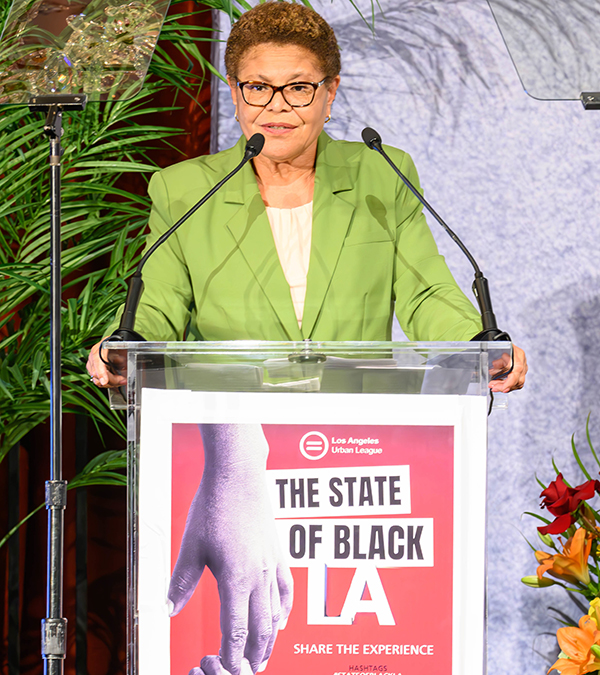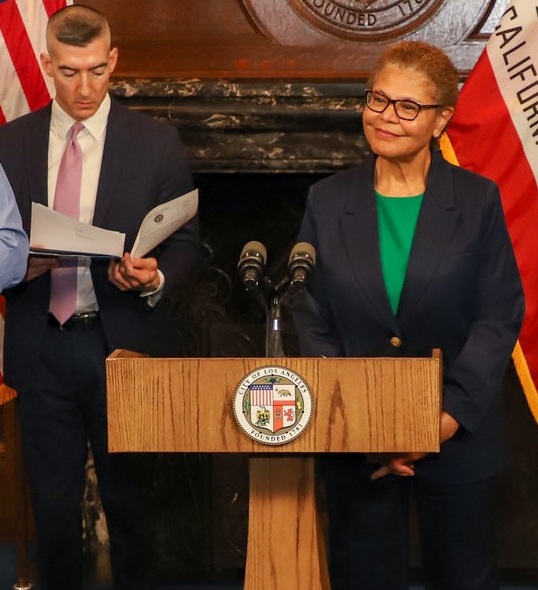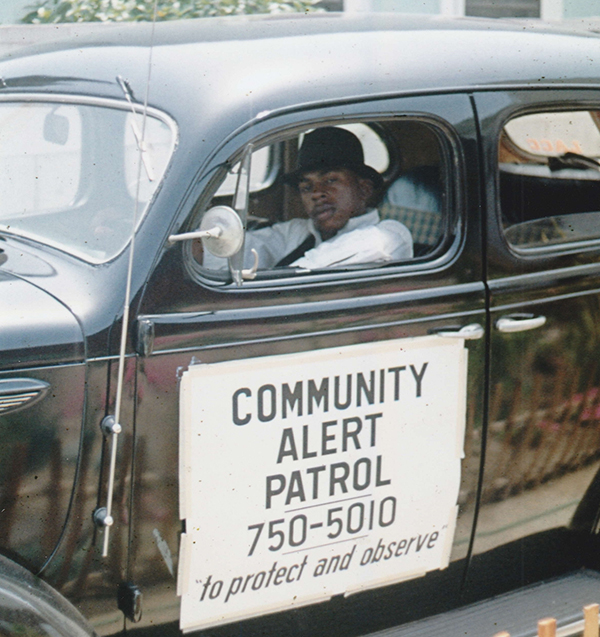By Anita Bennett
Contributing Writer
LOS ANGELES — As the city’s homeless crisis continues, Mayor Karen Bass said it’s time for the Black community to “step up” and play a larger role in preventing friends and family members from ending up on the streets.
“We need to own our part of this issue,” Bass said Sept. 13 during a symposium on the State of Black LA presented by the Los Angeles Urban League at USC. “We need to say that we’re going to bring our faith community together, we’re going to bring our business community together, and that we’re all going to have skin in the game.
“I really think that our folks need to step up,” she added.
Bass, who has been mayor since last December, said that most of the affordable housing being built in the city is occurring in council districts 8 and 9, which have large Black and Brown populations.
“Councilman [Curren] Price, Councilman Marqueece Harris-Dawson have built a majority of the affordable housing and have moved people off the streets,” Bass said. “But we need to have this same thing happen everywhere because we can’t move everybody to South LA.”
The mayor reflected on the early 2000s when she was first elected to the state Assembly, and said the number of Black people living on the streets has only gotten worse.
“Homelessness was an issue then,” she said. “But it was nothing like the issue today. Homelessness was in South Central. And it was on Skid Row. It was not citywide.”
Bass urged family members to intervene if a relative is at risk of becoming unhoused.
Accountability and finding solutions were key messages at the gathering, which also included discussions on reparations, multicultural collaboration and barriers holding Black people back including racism and inequality in education.
Los Angeles County is home to 936,285 Black residents, giving the region the third largest Black population in the United States, according the county’s latest “State of Black Los Angeles” report.
County Supervisor Holly Mitchell noted some of statistics that came out of the report.
“We have higher rates of obesity and diabetes, the lowest rates of COVID-19 vaccination and we are less likely to graduate high school and less likely to attend college,” Mitchell said.
She told the audience not to just sit back and accept the troubling data.
“I want you to get mad. I want us to find solutions to be motivated and to take action,” Mitchell said.
Walter Allen, a UCLA professor of education and African American studies in sociology, said many of these deep-seated problems are rooted in racism.
“It just simply comes down to a matter of us being a dispossessed population. And being a population that is at a polar opposite of whites,” Allen said.
Laura McGowan Robinson, founder and CEO of the Diversity and Leadership Institute, said one key solution is increasing the number of Black teachers and school principals who are invested in guiding Black children to success.
“What data bear out across the state is that when we have leaders of color, particularly Black leaders, and brown leaders in our K-12 systems, we have better outcomes for our students,” McGowan Robinson said. “On average, we’re seeing decreased suspension rates, we’re seeing higher performance on test on standardized tests.”











